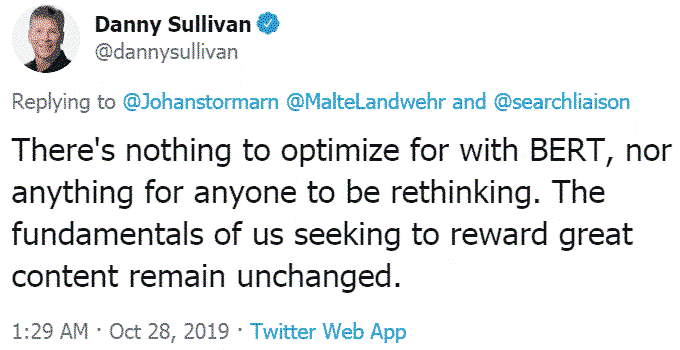Get on the Podium
Send us a message and let us know how we can help with your next project.
By Sarah Atkinson
On 25th October, Google announced changes to its search engine algorithm, a break-through in integrating natural language processing for optimising search results.
The new update is expected to deliver the most relevant results to search queries to date. The tech giants have stated that the new update will impact 10% of all search queries on Google, making this the biggest algorithm update in five years.
What is BERT?
Bidirectional Encoder Representations from Transformers (BERT) is Google’s neural network-based technique for Natural Language Processing (NLP).
BERT is used to help better understand the context of words in search queries and match them with more relevant results. The update also marks the first time Google is using its latest Tensor Processing Unit (TPU) chips to serve search results.
Google explained “2019 brazil traveller to usa need a visa,” the word “to” and its relationship to the other words in query are important for understanding the meaning. Previously, Google wouldn’t understand the importance of this connection and would return results about U.S. citizens traveling to Brazil. “With BERT, Search is able to grasp this nuance and know that the very common word “to” actually matters a lot here, and we can provide a much more relevant result for this query,”.
What does that mean for us?
You will more than likely see articles advising on how to rank for BERT etc. but ultimately nothing has changed in terms of SEO best practice. They key is to provide users with relevant content in the form of landing pages, blogs etc. and with the new update in place, you should see more relevant traffic directed to your site.
Google’s public search liaison, Danny Sullivan confirmed this on Twitter:

If you need help with writing interesting, SEO-friendly content for your website or need some advice on how to improve your rankings then get in touch with the talented team at Podium on 0191 466 1455 or drop us an email at hello@www.onthepodium.co.uk
Back
Send us a message and let us know how we can help with your next project.